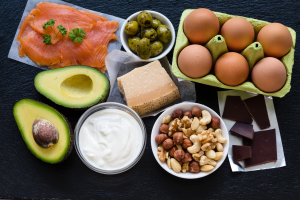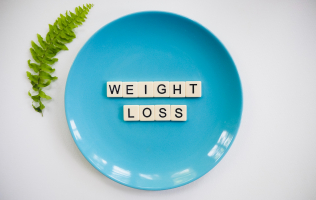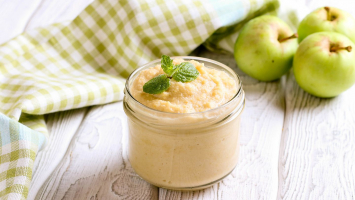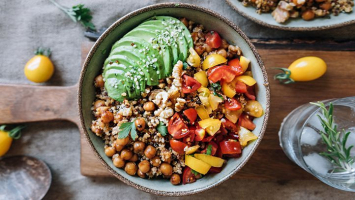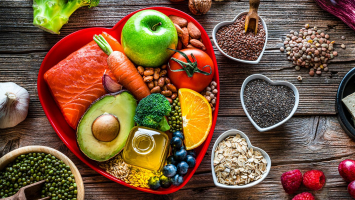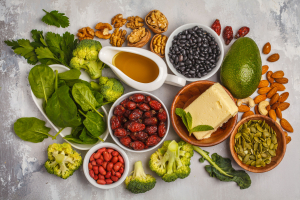Top 10 Best Plant-Based Diets
Going on a diet can be a lonely journey, especially if you do it by yourself. But long-term success is more likely if you make eating well a family affair. ... read more...Here are some of the Best Plant-Based Diets.
-
The historic eating habits of the 21 nations that border the Mediterranean Sea, including Greece, Italy, Croatia, Lebanon, Turkey, and Monaco, are the foundation of the Mediterranean diet. Evidently, the residents of this diversified location consume a variety of foods. The basic line is that eating predominantly plant-based foods, such as fruits and vegetables, while include whole grains, legumes, nuts, seafood, lean poultry, and unsaturated fat from extra-virgin olive oil is tremendously beneficial for general wellbeing, according to years of research and data.
Around the world, people from different cultures already practice this manner of eating. Simply said, they make use of various fruit, seafood, herbs, and spices. The Mediterranean diet emphasizes quality over just one nutrient or dietary category.
It's a straightforward strategy, yet it works: Many studies have demonstrated that this nutritional paradigm increases lifespan and improves quality of life while lowering the risk of a number of chronic diseases, including Type 2 diabetes and cardiovascular disease.The Seven Countries Study, a seminal study that examined the connection between diet and heart diseases among 13,000 men living in Greece, Italy, Japan, Finland, the former Yugoslavia, the Netherlands, and the United States from 1958 to 1999, was the first to provide evidence of the nutritional value and health advantages of the Mediterranean diet.
According to the study, the kind of fat—saturated, monounsaturated, or polyunsaturated—matters much more for cardiovascular health than the total amount of fat consumed. As long as the majority of the lipids consumed are unsaturated and saturated fats are consumed in moderation, even up to 40% of total calories from fat may be heart-friendly.
Pros:
- Nutritionally sound.
- Diverse foods and flavors.
- No counting carbs, points or calories.
- Filling – it's rich in high-fiber foods.
- No off-limit foods or food groups.
- Has proven health benefits.
Cons:
- Tedious portioning, meal planning or prep.
- Lacks in-depth nutritional guidance.

Image by Jill Wellington via pexels.com 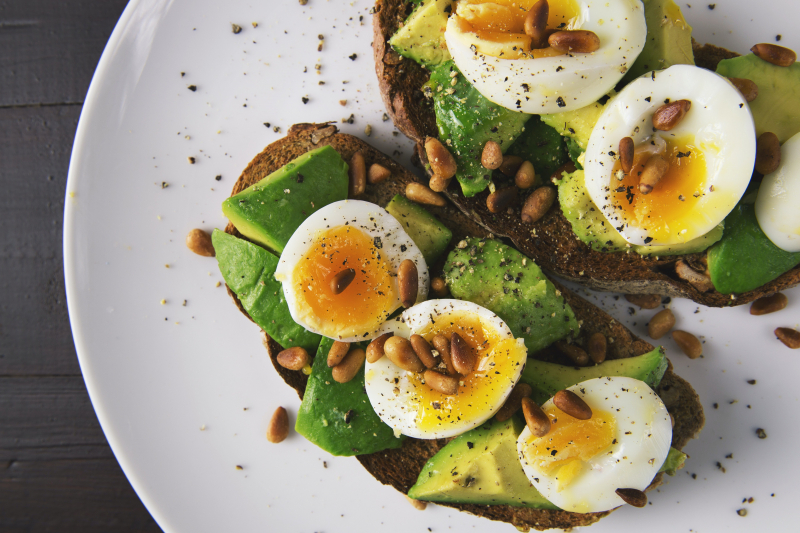
Image by Foodie Factor via pexels.com - Nutritionally sound.
-
A fusion of the phrases flexible and vegetarian is a flexitarian. Registered dietitian Dawn Jackson Blatner first used the word more than ten years ago in her book "The Flexitarian Diet: The Mostly Vegetarian Way to Lose Weight, Be Healthier, Avoid Disease, and Add Years to Your Life," published in 2009.
You don't have to give up meat entirely to enjoy the health advantages of vegetarianism with a flexitarian diet, commonly referred to as a semi-vegetarian diet. Instead, you can eat vegetarian the most of the time while occasionally treating yourself to a burger or steak. Studies demonstrate that those who follow the diet may not only lose weight but can improve their overall health by lowering their risk of heart disease, diabetes, and cancer by consuming more plants and less meat.
It is also regarded as being environmentally friendly because it decreases meat consumption. Dieting may be a lonely process, especially if you go it alone. Yet, making healthy eating a family affair will increase your chances of success in the long run. Some of the greatest diets for families are listed here.Pros:
- Nutritionally sound.
- Diverse foods and flavors.
- Coaching and/or group support available.
- Filling – it's rich in high-fiber foods.
- No off-limit foods or food groups.
- Convenient – grab and go options.
- Has proven health benefits.
Cons:
- You’ll likely get hungry.

Image by Oleksandr Pidvalnyi via pexels.com 
Image by Lisa Fotios via pexels.com - Nutritionally sound.
-
The MIND diet, also known as the Mediterranean-DASH Intervention for Neurodegenerative Delay diet, focuses on the items in both the DASH and Mediterranean diets that are notably beneficial for brain health in an effort to reduce the risk of mental decline. Although there is no guaranteed method to stop Alzheimer's disease, the progressive brain ailment that the MIND diet was first designed to treat, or other types of dementia, eating wholesome staples like leafy greens, almonds, and berries may reduce a person's risk of developing it.
Through a National Institute on Aging-funded study that was first released in 2015, the late Martha Clare Morris, a nutritional epidemiologist at Rush University Medical Center, created the MIND diet. According to the study, the MIND diet reduced the risk of Alzheimer's by up to 53% in those who adhered to it religiously and by roughly 35% in those who followed it only loosely. Further research links the MIND diet to additional advantageous impacts on cognition.Pros:
- Nutritionally sound.
- No counting carbs, points or calories.
- Filling – it's rich in high-fiber foods.
- A clearly defined plan with recipes.
- Has proven health benefits.
- Diverse foods and flavors.
Cons:
- Lacks in-depth nutritional guidance

Image by THE 5TH via pexels.com 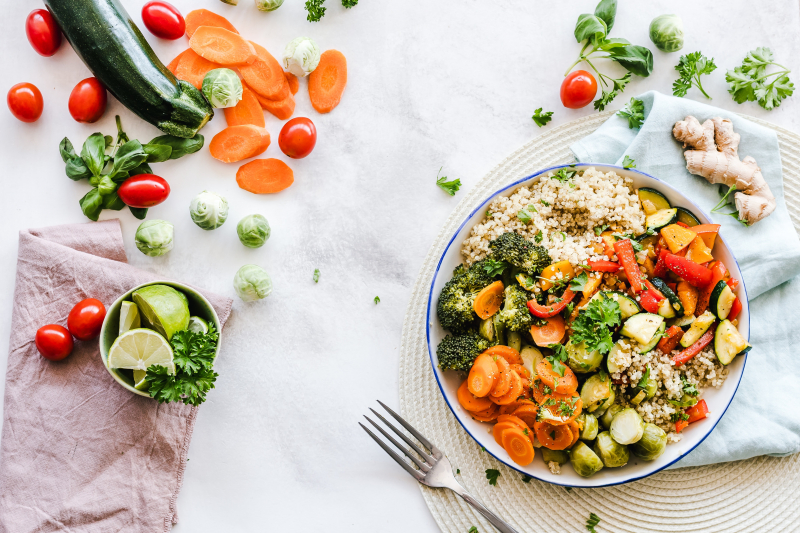
Image by Ella Olsson via pexels.com - Nutritionally sound.
-
With the Mayo Clinic diet, losing weight and leading a healthier lifestyle go hand in hand. With the assistance of the distinctive food pyramid developed by the Mayo Clinic, which places an emphasis on fruits, vegetables, and whole grains, you can reset your eating habits by breaking bad ones and substituting them with healthy ones. These foods typically have low caloric densities, allowing you to consume more while consuming less calories.
Consider this: You could eat around 2 cups of broccoli or a quarter of a Snickers bar for the same number of calories. Up until recently, the Mayo Clinic Diet book's third edition, which was released in 2022, and its website were the main resources for assisting people through its two phases. But, the Mayo Clinic diet recently debuted its online program, which offers additional options, habit-optimizing tracking systems, and group support elements.
Pros:
- Nutritionally sound.
- Coaching and/or group support available.
- Filling – it's rich in high-fiber foods.
- A clearly defined plan with recipes.
- Has proven health benefits.
Cons:
- Eating out limited.
- Lots of rules to remember.
- You’ll likely get hungry.

Image by The Lazy Artist Gallery via pexels.com 
Image by Lum3n via pexels.com - Nutritionally sound.
-
The anti-inflammatory diet is an eating regimen designed to lower chronic inflammation and related ailments, such as heart disease, some types of cancer, and Alzheimer's disease. It was developed by integrative medicine physician Dr. Andrew Weil.
Weil claims that it is based on the Mediterranean diet with a few additions, such green tea and dark chocolate. The diet recommends a wide range of fresh meals, with a focus on fruits and vegetables, which according to Weil, include phytonutrients, a material found in plants that may be good for human health and prevent a number of ailments.
Weil also suggests regularly consuming omega-3 fatty acids and avoiding all fried and fast food at all costs. By dietary component, the recommendations become increasingly detailed. For instance, you want carbs that will maintain a low and stable blood sugar level. In order to do this, choose less processed food and eat enough of whole grains, beans, squash, and berries, which are good sources of carbohydrates.Pros:
- Nutritionally sound.
- Coaching and/or group support available.
- Filling – it's rich in high-fiber foods.
- A clearly defined plan with recipes.
- Has proven health benefits.
- Diverse foods and flavors.
Cons:
- Tedious portioning, meal planning or prep.
- Lots of rules to remember.

Image by Pixabay via pexels.com 
Image by Jessica Lewis Creative via pexels.com - Nutritionally sound.
-
According to Lisa Jones, a registered dietitian based in Philadelphia, the volumetrics diet promotes consuming nutrient-rich, low-calorie foods such as fruits, vegetables, whole grains, and low-fat dairy. Low-calorie foods include a lot of water, which gives them more volume and makes people feel fuller. They are primarily foods high in water content, such as fruits, non-starchy vegetables, and soups. The diet recommends reducing foods with a high calorie density, such as those that include a lot of harmful fats and added sugar.
The eating plan was developed by Barbara Rolls, a nutrition professor at Penn State University. It is more of an approach to eating than a set diet. You can reduce the calorie density of your meals and learn to identify foods' caloric densities by using the book "The Ultimate Volumetrics Diet" as your guide.Pros:
- Nutritionally sound.
- Diverse foods and flavors.
- No counting carbs, points or calories.
- Filling – it's rich in high-fiber foods.
- No off-limit foods or food groups.
- Has proven health benefits.
Cons:
- Tedious portioning, meal planning or prep.
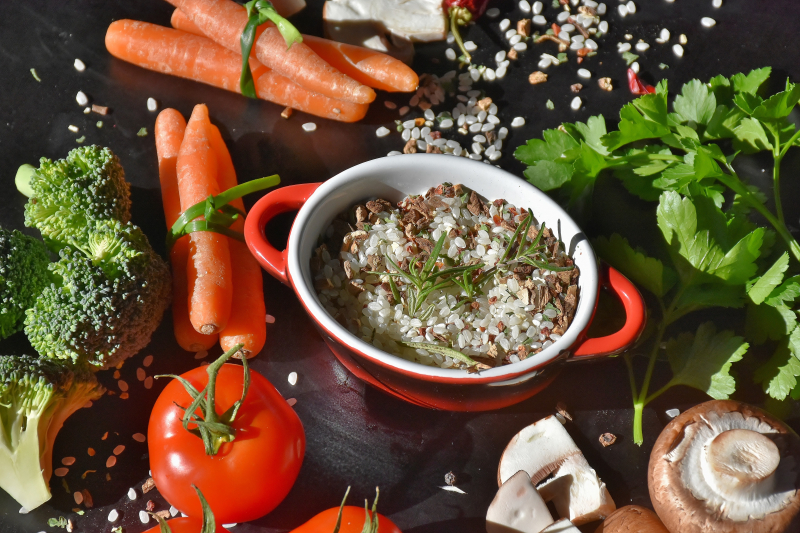
Image by Pixabay via pexels.com 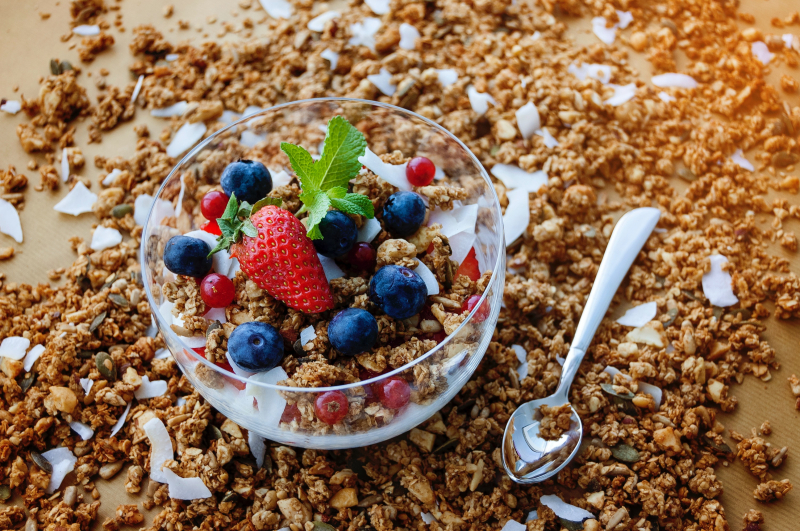
Image by Ovidiu Creanga via pexels.com - Nutritionally sound.
-
The raw food diet is a lifestyle that is always changing. It was developed in the late 1800s by a doctor who used eating raw apples to treat his own jaundice, and it has since been the subject of research to learn more about how eating raw food affects human health.
The foundation of the raw food diet is based on consuming food that hasn't been cooked, processed, microwaved, irradiated, genetically modified, or exposed to pesticides or herbicides; however, there are many variations of it today. But relatively few people consume only raw foods. Those who follow a raw food diet consume between 75 and 80 percent of their daily calories from plant-based foods that have never been heated past 115 degrees Fahrenheit.
The majority of adherents are vegans, although others elect to ingest uncooked animal products such as raw (unpasteurized) milk, raw milk cheese, sashimi, raw fish, and certain types of raw meat. Few scientific studies back up assertions that boiling kills nearly all of the immune-boosting plant components and the majority of the food's vitamins. Most nutrition experts think this low-calorie diet isn't ideal because most people who follow the plan barely ingest half the calories they would on a normal diet.Pros:
- No counting carbs, points or calories.
- Filling – it's rich in high-fiber foods.
Cons:
- Lacks in-depth nutritional guidance.
- Eating out limited.
- Unsafe for some people.
- Little research to back it up.
- Could fall short nutritionally.

Image by Lum3n via pexels.com 
Image by Engin Akyurt via pexels.com -
The nutritarian diet, which Dr. Joel Fuhrman, a family doctor, developed in 2003, places a focus on plant-based, nutrient-rich meals. According to Fuhrman, who wrote the 2021 publication of "Eat For Life," a more up-to-date and comprehensive update to his 2011 "Eat to Live: The Incredible Nutrient-Rich Diet for Rapid and Sustained Weight Loss," it's intended to help you lose weight and keep it off.
Following the nutritarian diet, you'll consume a lot of plant-based, nutrient-dense superfoods while cutting back on processed foods, like olive oil, and animal protein. According to Fuhrman, the high salt and sugar content of the American diet eventually damages the taste buds. Your taste is reset and retrained to enjoy more organic, healthful foods by following a nutritarian diet.
Fuhrman, who is also the president of the Nutritional Research Foundation, says that consuming sweets and salty foods frequently damages the "taste muscle" in general as well as your capacity to detect salt and sweetness. For a few months after stopping this overstimulation, food may taste bland as the "taste muscle" recovers and allows you to appreciate richer flavors in entire foods that you were previously unaware of.According to nutritarian diet manuals, the nutritarian diet may aid in weight loss while protecting against autoimmune disorders, heart disease, diabetes, some types of cancer, and heart disease. The nutritarian diet is "a strong approach to lose weight, reverse chronic disease, live healthier, enhance your immunological defenses, and delay the aging process," according to Fuhrman's assertion based on scientific evidence.
Pros:
- Coaching and/or group support available.
- No counting carbs, points or calories.
- Filling – it's rich in high-fiber foods.
Cons:
- Potential for monotony unless you customize.
- Eating out limited.
- Lots of rules to remember.
- Could fall short nutritionally.

Image by Pixabay via pexels.com 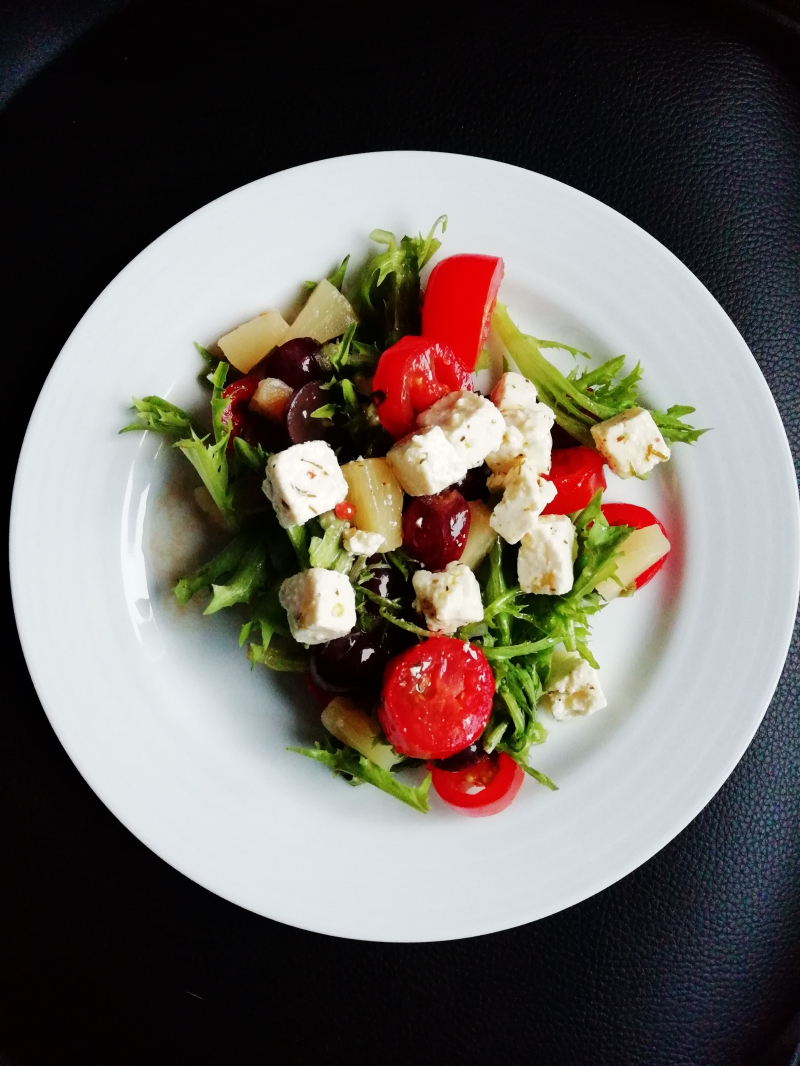
Image by Iina Luoto via pexels.com - Coaching and/or group support available.
-
Dr. Dean Ornish, clinical professor of medicine at the University of California, San Francisco, and founder of the nonprofit Preventive Medicine Institute in Sausalito, California, created the Ornish diet, a low-fat eating regimen, in 1977. Some of the advantages that the Ornish diet is said to offer include the reversal of chronic disease and general enhanced health.
According to Frederick, Maryland-based registered dietitian Sarah Schlichter, the diet promotes consuming a variety of plant-based meals such fruits, vegetables, whole grains, and legumes. The diet, also known as a lacto-ovo vegetarian diet plan, does not recommend eating meat, fish, or fowl, although it does allows the consumption of dairy products and eggs.
The diet divides foods into five categories, ranging from the healthiest (group 1) to the least healthy (group 5). (group five). One of the four main foundations of the Ornish Lifestyle Medicine by Sharecare program is the Ornish diet. The other four are love (the notion that joy and sociable connections with people are essential to well health) and social support.Pros:
- No counting carbs, points or calories.
- Filling – it's rich in high-fiber foods.
- Has proven health benefits.
Cons:
- Tedious portioning, meal planning or prep.
- Potential for monotony unless you customize.
- Unsafe for some people.
- Lots of rules to remember.

Image by Jessica Lewis Creative via pexels.com 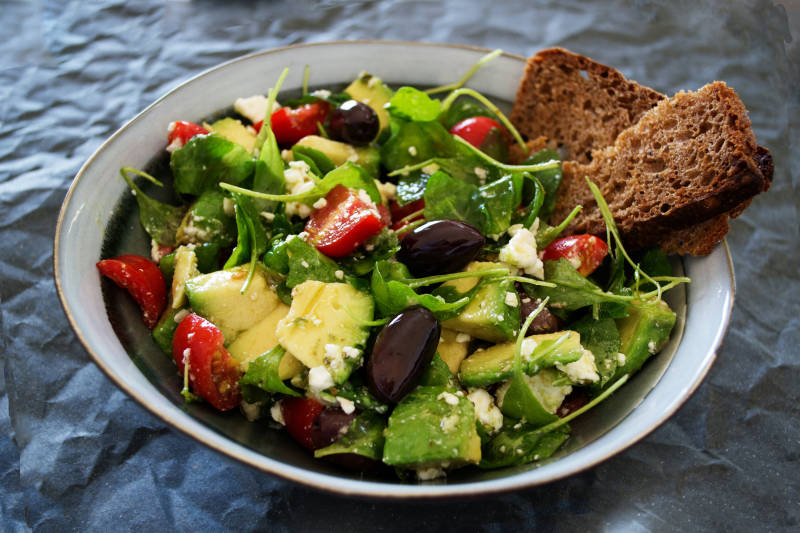
Image by Dana Tentis via pexels.com - No counting carbs, points or calories.
-
The basic principle of the paleo diet is that if the cavemen didn't eat it, you shouldn't either. You won't eat refined sugar, dairy, legumes, or grains on the paleo diet because they predate the agricultural revolution. Instead, fill up on the fruits, vegetables, meat, fish, and poultry that your Paleolithic predecessors ate.
The concept is to prevent or treat "diseases of civilization" like Type 2 diabetes and heart disease by avoiding modern foods like highly processed carbs and dairy. With this diet, you might also reduce your weight Your personal objectives and the program you've chosen will determine what and how much you consume. The U.S. News experts give the high-protein diet a bad rating because they believe it is too restricted to be healthful or sustainable.
Pros;
- No counting carbs, points or calories.
- Filling – it's rich in high-fiber foods.
Cons:
- Tedious portioning, meal planning or prep.
- Potential for monotony unless you customize.
- Eating out limited.
- Lots of rules to remember.
- Could fall short nutritionally

Image by Vincent Rivaud via pexels.com 
Image by Pineapple Supply Co. via pexels.com












